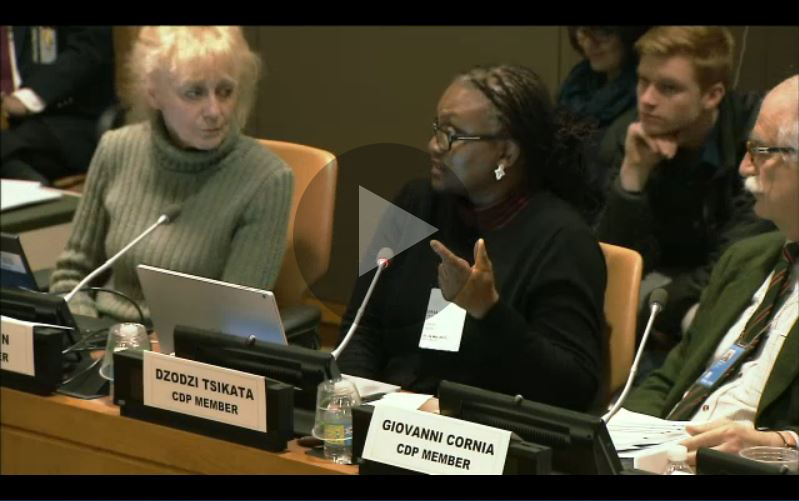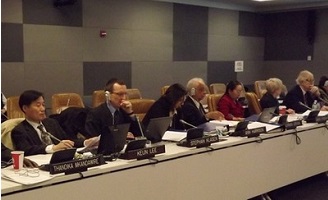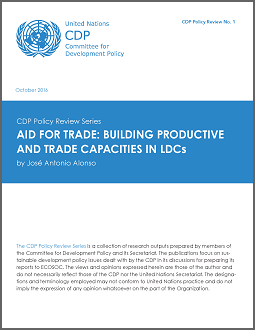CDP Theme: Productive Capacity
Productive Capacity
12 April 2017
The paper starts with an overview of Ethiopia’s economic growth and the change in the domestic economic structure. The manufacturing sector is seen as the success of Ethiopia’s Growth, and its development to a large extent the product of an activist developmental state. The paper then examines growth and diversification of exports and the country’s recent efforts to effectively exploit its natural resources. An analysis of public and private investment and the underlying allocation of financial resources finds that a recent upturn in domestic investment has been financed largely by foreign aid, and that private financing remains too low. Finally, the paper addresses educational attainment, arguing that Ethiopia has some distance to go in its attempts to close the large human capital gap relative to other low-income countries.
29 March 2017
In a special briefing on 21 March 2017, during the 19th Plenary Session of the United Nations Committee for Development Policy (CDP), Professors Tea Petrin, Dzodzi Rsikata, Keith Nurse and Rashid Hassan briefed delegates on lessons learned in building productive capacity in least developed countries (LDCs) – those who have graduated and those in the process of graduating.
1 March 2017
Some countries have graduated from the LDC category or made progress towards graduation not through progress in all three LDC criteria but by specializing in a few economic activities while at the same time investing in human capital. Bhutan falls within this latter category given that it specializes in natural resource based activities (hydropower generation) and tourism, with some manufacturing.
23 November 2016
On 2 December 2016 the Secretariat of the Committee for Development Policy (CDP) is organizing an expert group consultation in Geneva to explain the concept behind the LDC graduation toolkit; solicit feedback and establish possible partnerships. Docume ...
23 November 2016
From 30 November to 1 December 2016 the Secretariat of the Committee for Development Policy (CDP) is organizing an expert group meeting (EGM) in Geneva to discuss lessons learned by selected least developed countries (LDCs) and developing countries in ...
8 November 2016
The ePing system, an SPS and TBT notification alert system developed by UN DESA in cooperation with the WTO and ITC, is officially launched on 8 November 2016 at the WTO, by UN Assistant Secretary-General for Economic Development in UN DESA Lenni Montiel, WTO Deputy Director General Karl Brauner and the Executive Director of ITC Arancha González.
1 November 2016
Government policymakers from 16 least developed countries (LDCs) and one graduate, Samoa, will gather in Beijing, China, from 10 to 12 November 2016 to discuss strategies needed to successfully graduate from LDC status and to achieve the Sustainable De ...
23 October 2016
CDP Policy Review No. 2 By Keun Lee The paper discusses two ways of building productive capacity in LDCs: the manufacture of products to foreign buyers’ specifications, and the integration of resource-based sectors into global value chains using backwa ...
22 October 2016
CDP Policy Review No. 1 By José Antonio Alonso The paper looks into the origins of Aid for Trade (AfT) and its objective of assisting developing countries to increase exports of goods and services and integrate into the multilateral trading system. Poi ...










Follow Us